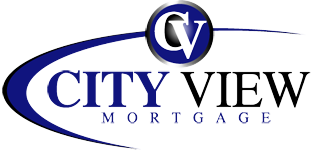Top 12 Common Mortgage Questions & Answers
Pro Tip: Always stay in close communication with your loan officer — fast document turnarounds and open communication help you close on time and with confidence.
What affects my mortgage interest rate?
Your mortgage rate depends on several factors — including your credit score, loan type, down payment, loan term, and current market conditions. A higher credit score and larger down payment usually help you qualify for a lower rate.
What does “locking in” my rate mean?
Locking your rate means your lender guarantees your interest rate won’t change for a set period (usually 30–60 days) while your loan is being processed. This protects you from market fluctuations that could raise rates before you close.
What is LTV (Loan-to-Value Ratio)?
Your LTV compares your loan amount to the value of the property. For example, if you buy a $400,000 home with a $320,000 loan, your LTV is 80%.
A lower LTV can mean better rates and fewer requirements, such as no private mortgage insurance (PMI).
What’s the difference between a fixed-rate and adjustable-rate mortgage?
A fixed-rate mortgage keeps the same interest rate for the life of the loan, so your payments never change.
An adjustable-rate mortgage (ARM) starts with a lower initial rate that can change over time based on the market — ideal for short-term homeowners or investors.
How much should I put down on a home?
While the traditional down payment is 20%, many loan programs allow as little as 3% down (or even 0% for VA and USDA loans).
Your lender can help you explore what works best based on your budget, goals, and loan type.
What’s the difference between pre-qualification and pre-approval?
- Pre-qualification is a quick estimate of what you may be able to borrow based on self-reported information.
- Pre-approval involves a more detailed review of your financials — including credit, income, and assets — and gives you a stronger position when making offers.
What are closing costs, and how much should I expect?
Closing costs include fees for the loan, title, appraisal, and other services.
Typically, they range from 2–5% of your loan amount.
Your lender will provide a Loan Estimate early in the process so you know exactly what to expect.
Can I refinance my loan later?
Yes! Refinancing lets you replace your current loan with a new one — often to get a lower rate, shorten your term, or tap into your home’s equity.
Your lender can help analyze when it makes sense based on market conditions and your financial goals.
What is PMI (Private Mortgage Insurance)?
PMI is insurance that protects the lender if you default on your loan. It’s usually required if your down payment is less than 20%.
Once your loan balance drops below 80% of your home’s value, you can often request to remove it.
How long does the mortgage process take?
On average, most home loans take about 30 to 45 days from application to closing.
The timeline depends on the loan type, how quickly documents are submitted, and third-party services like appraisals and title work.
Do I need perfect credit to buy a home?
No! You don’t need perfect credit to qualify for a mortgage. Many loan programs, such as FHA, VA, and USDA loans, are designed for buyers with less-than-perfect credit. Even if your score isn’t ideal, your lender can help you find options that fit your situation and guide you on improving your score for better terms.
How does my credit score affect my loan rate?
Your credit score directly impacts your interest rate.
A higher score signals lower risk to lenders, which can result in a lower rate and monthly payment.
Even a small improvement — like going from a 660 to 700 credit score — can make a noticeable difference in what you pay over time.


